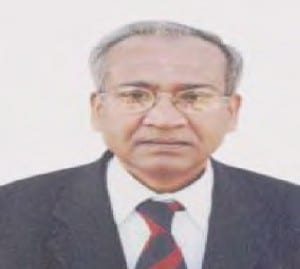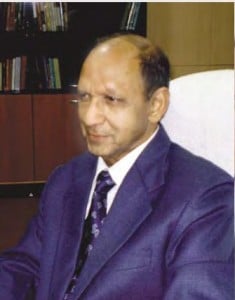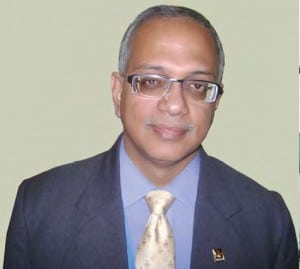|
 Guru Gobind Singh Indraprastha University was conceptualised to provide the ever increasing youth population in Delhi and the country with an opportunity to pursue world class and market oriented professional education. That the university lays much stress on adapting to changing needs of the modern economy can be gauged from the fact that it runs more than 70 programmes of societal relevance like Disaster Management, Real Estate, Software Enterprise, Prosthetics and Orthotics, Public Health, etc. Guru Gobind Singh Indraprastha University was conceptualised to provide the ever increasing youth population in Delhi and the country with an opportunity to pursue world class and market oriented professional education. That the university lays much stress on adapting to changing needs of the modern economy can be gauged from the fact that it runs more than 70 programmes of societal relevance like Disaster Management, Real Estate, Software Enterprise, Prosthetics and Orthotics, Public Health, etc.
|
In what ways does Guru Gobind Singh Indraprastha University seek to impart quality education?
The word university originates from universe. My vision is to turn GGSIPU into a place where there would be a conglomeration of students and faculty members from various places in the world to generate new knowledge and at the same time creating an environment where confluence of ideas would take place.
We also strive to provide a market oriented professional education to the student, which not only serves the cause of higher education but also meets the needs of the industry through various disciplines in traditional as well as emerging areas.
With GGSIPU being a fairly new university, what in your view are its main challenges?
The primary challenge for us is to meet up the scarcity of space. Fortunately, Delhi government has given us more than 60 acres of land and the construction work is in progress.
A University is known by the students it produces. So, another challenge is how to attract the best talented students and nurture them further, so that after passing out they bring name and fame for themselves as well as for their University. For this, we require to attract good faculty. Although, we already have a group of dedicated faculty, we need to attract more with cosmopolitan characteristics.
The third challenge is to ensure quality in 90 affiliated colleges that we have. These colleges are totally self-financed, so without intervening in their day to day administration, how their standard of education could be made better.
How would you rate the Indian higher education system?
Although we are coming up with new institutions of higher learning and excellence, there is a need to enhance our enrollment ratio in higher education. The enrollment ratio for higher education in India is merely 11%. A higher enrollment ratio resulting in enhancement of human capital, corresponds to an increase in the national wealth.
Education demands quality orientation. Good academic institutions are built up by good faculty. This throws up an additional challenge of attracting the best brains, to academics. In my view this is a serious challenge our higher education is facing today.
Good academic institutions are built up by good faculty. This throws up an additional challenge of attracting the best brains, to academics. In my view this is a serious challenge our higher education is facing today.
How much can ICT in education contribute in overcoming these challenges?
Today the meaning of education and pedagogy has changed. You can not leave ICT aside while thinking of the former. ICT can help deliver the course content, best curriculum, and quality inputs in an effective way. Today if I am to deliver a lecture, I can prepare notes on the basis of content available on the MIT website. Hence ICT is one of the best intervention for enhancing quality of teaching.
ICT has also popularised the distance mode of education. Through video-conferencing students can interact with the professors, virtually making it as real as a traditional classroom. Distance education, enabled with ICT, can reach out to lot of people even in remote and inaccessible areas of the country. ICT enabled learning will emerge as the largest mode of education in the future.
What are your views on the industry readiness of our graduates?
This whole issue is a controversial one, because most of the time industries are not aware of the capabilities of our graduates or are not clear about their requirements. Whenever industry has been involved in curriculum design of any institute, in most of the cases the experience has not been very encouraging. The situation will change, once more industries come ahead to develop home grown technology and processes.
But I think things are changing, for example lot of interaction has been happening between the pharmaceutical industry and educational institutions.
Can you identify some areas of interaction between your institution and industry?
There are many areas where the University and industry can interface for the benefit of students and for the betterment of education. For example, Chemical Technology, Biotechnology, Environment Management, Information Technology and Management Studies etc.
Recently our bio-technology department was involved in a project to certify the pesticide content in vegetables like cauliflower, peas, potato, etc. We are also trying to develop a technology to laminate food items to increase their shelf life. World over, about 40 million dollars worth food items are wasted owing to their low shelf life.
Retention capacity of PHD students in India is very low. What do you think are the reasons for it?
The answer lies in the basic fact that if we give our students better opportunities, they will not leave.
Moreover, there are more opportunities in R&D abroad than in India. If similar opportunities are created here and industries increase their budget on R&D, we would be able to retain our students. At the same time, situation has now started changing as lot of Indians who went abroad are willing to come back.
How do you see the future of the Indian educational system?
The future of our educational system is very bright as 54% of our population is below the age of 25. If we look at developed countries, their population is aging. So our educational system should be geared to provide manpower to those countries.
Our education system is the best in the world and that is why they excel abroad. If we look at statistics, 22% of Silicone valley Engineers are from India, 32% of the teaching fraternity in USA belong to India. Although our IIT, IIITs, IIMs match up to international levels in teaching, we cannot say the same about other majority institution of higher learning. Hence we need to bridge the gap between these colleges and premier institutes to bring them at par with world class education.










 Guru Gobind Singh Indraprastha University was conceptualised to provide the ever increasing youth population in Delhi and the country with an opportunity to pursue world class and market oriented professional education. That the university lays much stress on adapting to changing needs of the modern economy can be gauged from the fact that it runs more than 70 programmes of societal relevance like Disaster Management, Real Estate, Software Enterprise, Prosthetics and Orthotics, Public Health, etc.
Guru Gobind Singh Indraprastha University was conceptualised to provide the ever increasing youth population in Delhi and the country with an opportunity to pursue world class and market oriented professional education. That the university lays much stress on adapting to changing needs of the modern economy can be gauged from the fact that it runs more than 70 programmes of societal relevance like Disaster Management, Real Estate, Software Enterprise, Prosthetics and Orthotics, Public Health, etc.  Gautam Buddha University was established in 2008 to impart quality post graduate education and research in emerging disciplines of management, IT, biotechnology, etc, to the disadvantaged sections left out from the purview of higher education.
Gautam Buddha University was established in 2008 to impart quality post graduate education and research in emerging disciplines of management, IT, biotechnology, etc, to the disadvantaged sections left out from the purview of higher education. provider with global presence in 20 countries, over 195 courses and 96,000 students. It is a chosen destination not only for students from India, but from 51 countries across the world!
provider with global presence in 20 countries, over 195 courses and 96,000 students. It is a chosen destination not only for students from India, but from 51 countries across the world!








